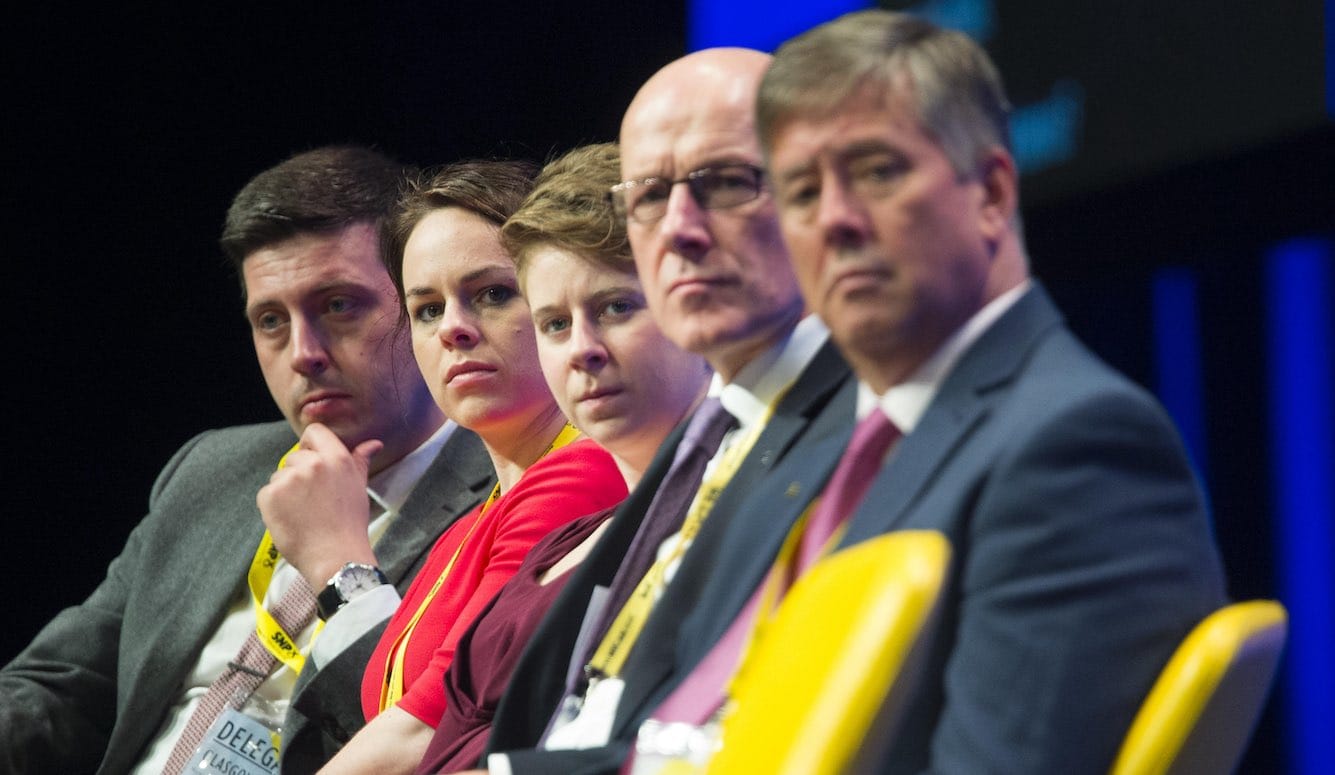Politics
A Disunited Kingdom
New SNP leadership and an unpopular Labour Party may yet force Scottish independence back onto the political agenda.

Many European states have political parties that exist to convince a part of their population to secede and make their own way in a separate polity. Most of these parties are small, electorally insignificant, and only occasionally violent (as on the French island of Corsica). But they are all likely to be assisted by the turbulence of our political moment.
Germany hosts two separatist parties—the Bavaria Party and the Free Voters of Saxony, both of which have local followings but attract only a small number of votes. In Italy, the Northern League was established in the early 1990s to create “Padania,” a new state freed from the corruption of Rome. It has since contracted its name to The League to become a small right-wing party and a partner in the current right-wing government. Belgium is divided between Dutch-speaking Flanders in the north and French-speaking Wallonia in the south. The country was expected to split after the 2024 election, but the far-right secessionist party in Flanders, Vlams Belang, came second to the more moderate, centre-right N-VA. After seven months of talks, the N-VA formed a national coalition government with Wallonia’s centre-right party, and Belgium is holding together—for the time, at least.
Spain is a country of passionately autonomist regions and it is currently experiencing a period of strong economic growth. But the country’s prime minister, Pedro Sanchez, is under constant attack, and the fragile coalition he leads has been dependent on the support of Catalonian independence parties. An election in the region last year, however, showed a significant rise in support for Catalonia’s pro-government socialist party. This has weakened both of the region’s secessionist parties and the grip they exercise over Sanchez.
So, a tentative peace has settled over the governments of Europe, relieved for now of the immediate worry that their borders will be challenged and that politics will return to a hectic series of late-night meetings called to avert a national break-up. Yet one country still threatens to split into separate states through the process secessionists like to call liberation, and it is the state that most boldly proclaims its national wholeness: the United Kingdom.





